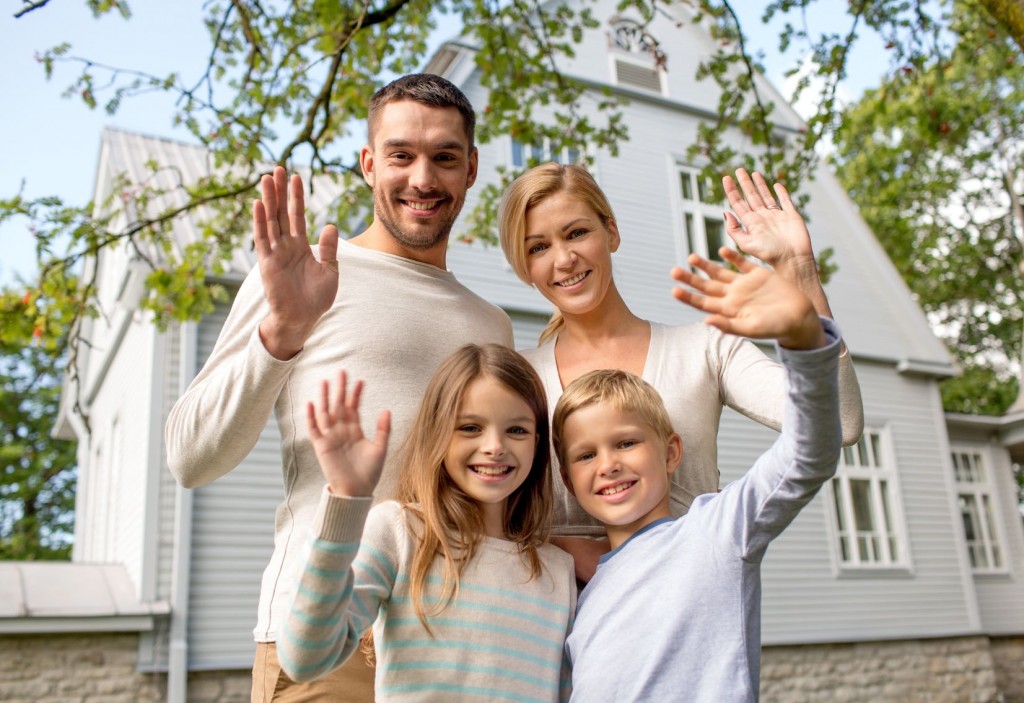Probably the greatest life skill is learning to get along with others. You don’t teach or learn that by focusing on a technique. It begins in the heart. It emanates from a genuine respect for others.
And that can be trained in a young child through several ways. One of the simplest is a 2-second habit they’ll have the chance to repeat many times a day.
It’s simply this: train your child to recognize another with an appropriate greeting.
Greeting Issues
A favorite Seinfeld episode has Elaine arriving at Jerry’s apartment just as his girlfriend is leaving. The girlfriend walks right past Elaine without saying a word. Elaine asks Jerry what that was all about. “She has greeting issues.”
It’s a common malady.
It’s amazing how many see family members first thing in the morning, arrive at work, pass someone in the hall, or join others for a meeting and not begin with a simple, “Good morning.” If someone starts a conversation with me first thing in the morning without a greeting, I simply smile—you need to smile—and say, “Good morning!”
“What’s the big deal? Perhaps a person is just preoccupied.” Granted, there are emergencies or other serious situations where a person is easily excused from basic pleasantries. But those situations are pretty few and far between.
You may feel it’s unnecessary. Others may think you’re just rude. Whether intentional or not, neglecting others in this way labels you as uninterested at best.
Why Greetings Are So Important
Recognizing another with a simple greeting affirms their worth. Yes, you’re busy. Yes, we may have important work to do. But there isn’t anything tough about taking 1 or 2-seconds to greet another.
To simply acknowledge another, to take time to wish them a good morning or simply say hello, says they matter.
I love meeting someone on the sidewalk who appears to be down and out. They’re looking at the ground as we approach each other. You can tell they are used to the world passing them by. The expression on their face when I give them a hearty, “Good morning!”, never gets old. It’s like handing food to someone starving.
Your child needs to learn that others matter. They matter to God. They should matter to us. Any expression of courtesy and respect reinforces that. That’s why we should train our children earlier on to be bold greeters.
And the reality is that people gravitate towards and favor those who genuinely value them.
Simple Applications For Child Training
- You go first. You have to model what you hope to instill in your child. So if you’ve had greeting issues in the past, it’s time to get serious. Take the lead and always greet others.
-
Good morning. Train your child that when they see a family member for the first time after waking up, initiate or respond with, “Good morning!” The more energetically delivered, the better it makes you both feel.
-
Hello. It never hurts to say a simple “hello” or “how’s it going?” to everyone throughout the day. Even if you’ve interacted already, if you haven’t them seen for a while, acknowledge them again in some way. For a child, it should be, “Hey Mom/Dad!”, all day long whenever you cross paths.
-
Meeting other adults. When your child is with you and you meet another another, train them to say hello when appropriate as well.
-
Salutations This same principle applies when leaving. “Good bye,” “See you later,” “Good to see you!”, are always appreciated.
Bonus Points
-
Make eye contact. Teach your child to look in the eyes of the person when greeting and speaking to him.
-
Use a person’s name. The sweetest sound in anyone’s ears is the sound of his/her name. Use it and often.
-
Use appropriate titles. Help your child learn respect for authority by requiring them to use appropriate titles; e.g., Mr., Mrs., Pastor, Teacher.
-
Smile. Smiles help everyone—including you.
Train your child to recognize others with an appropriate greeting.
The world needs more gestures that show courtesy and respect. You can’t train the world but you can train your child. And life will grace everyone who shows courtesy and respect to others.
If you want to set your child up for greater relationships, greater favor, greater opportunity, instill this simple 2-second habit of acknowledging others with an appropriate greeting. Have a good day!
Question: Did you learn to greet others as a child or is this something you had to learn later in life? Share your answer in the comments below.
